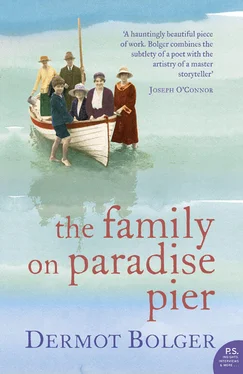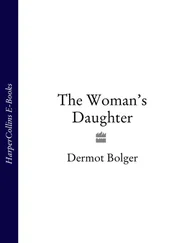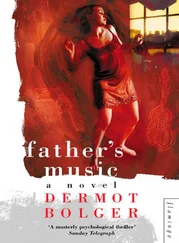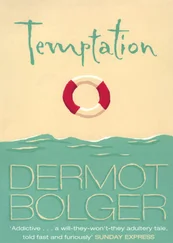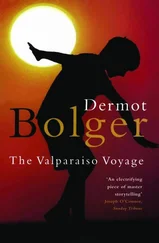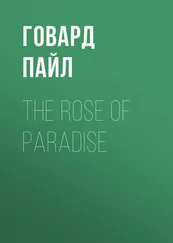Selecting her husband’s favourite, she rose. Tim would be pleased to see that she was not too frail to leave her bed today. He was probably sleeping downstairs so as not to wake her. But when she reached the drawing room he was not lying on the sofa. His body was slumped forward in an armchair, with a book of poems still balanced on his knee. Mrs Goold Verschoyle watched, too scared to move. It would be typical of Tim for his death – like his entire life – to be so understated that the book had not even fallen from his lap.
Show some mercy, Lord , she prayed. Don’t take him away from me also.
The book toppled over, striking the carpet with a dull thud. Mr Goold Verschoyle stirred slightly, looking down at the book and stooped to pick it up. He became aware of her.
‘How is my darling?’ he asked quietly.
Mrs Goold Verschoyle made no reply, but walked over to place her hand on his shoulder.
‘I know,’ he said. ‘I can feel how precious this time is too.’
Tragedy declined to penetrate the Mayo wood today because it wasn’t a telegram boy who emerged beneath the chestnut branches onto the lawn where Eva and her children watched. Instead it was Maureen, their former maid but now their friend and lodger. She freewheeled up to the steps, delighted with her weekly half day off from the shop in Castlebar where she worked. Her wicker basket was full of provisions ordered by Eva, with every item paid for. It was bliss to owe no money and have no fear of creditors.
Glanmire House had undoubtedly gone to seed. Cracked windowpanes had not been replaced, loose tiles let rainwater into disused rooms with walls covered in a seaweed-like vegetation. But the kitchen was dry and warm and the few habitable rooms were adequate for their needs. Just now those needs were simple.
The horror of war was ever present by its absence. This woodland silence seemed artificial, as if punctured by distant cries so high-pitched that only the dog could cock her head to stare off puzzled into the distance.
Ireland was not yet directly consumed by the conflagration, but few doubted an imminent invasion from one side or the other. While the countryside held its breath people learnt to live in limbo. For Protestant neighbours the fact that Freddie had joined the British army was sufficient to reinstate respectability after the debacle of their bankruptcy. With Freddie too engrossed in army life to press her about maintaining appearances, Eva could discreetly go native with the children, talking and thinking as they liked in the privacy of this wood. Without Freddie, Glanmire House reminded her of the freedom of her childhood in Donegal.
Hazel waved to Maureen, then picked up the bucket of water and went to the kitchen. Francis waved and rolled onto his stomach to let the sun warm his back. Maureen laid her bicycle against the steps and strolled over to Eva.
‘That heat’s a terror.’ She flopped down. ‘The chain came off my bike near Turlough and I thought my hands would be destroyed with oil.’
‘Any news from the village?’ Eva asked.
‘Divil the bit, Mrs Fitzgerald. The Stagg boys are off to England for work, though you’d swear half of Mayo had the same idea if you saw the crowds in Castlebar Station and the train already packed from Westport. They’ll be sitting on the roof in Claremorris if it gets that far with the wet turf they’re burning. They say English factory owners are crying out for workers.’
Maureen kicked off her shoes and lay back to let the sun brown her legs. Eva wondered if the girl was hinting at being tempted to go. The young woman reached into her bag to produce a letter.
‘I met Jim the Post and said I’d save him the cycle,’ she said. ‘He looked killed with curiosity wondering what might be in it.’
Both laughed before Maureen picked up her shoes and went to join Hazel in the kitchen. Eva opened Freddie’s letter with trepidation because it was true that his weekly registered one, containing her allowance, had only arrived on Monday. As always his tone was candid, yet circumspect. The mantra that careless talk cost lives was instilled in him, though Eva doubted if his letters were being steamed open by German sympathisers in an Irish sorting office. The Irish preferred to receive news of the tightening Nazi noose by listening to Lord Haw-Haw’s bragging tones on German radio. Even then she suspected that most locals only listened because Haw-Haw was a fellow Connaught man and they took pride to see a local do well for himself in any walk of life.
Typically the first page enquired after the children before Freddie imparted his news. Eva’s fears of him being dispatched to join the fighting were groundless – for now at least. With two million young men called up, the army needed experienced men to provide military training, and Freddie wrote that his time spent shooting on the Mayo bogs might not have been wasted after all. He kept his tone self-deprecating, as if baffled at having to relay the news of being commissioned as a second lieutenant in the Educational Corps. But Eva knew he would have impressed his superiors by being the best shot in his reserve artillery company. Such promotion was a dream realised, especially with his disability. Eva knew that he would show each conscript the care he would have taken with Francis had his son betrayed the slightest interest in guns.
Freddie had knuckled down to army life. The routine suited him. He would be popular once he controlled his drinking – his Irishness being a bonus for showing that he had deliberately chosen to be involved in the war. His tales about shooting on the bogs would be embellished for comic effect. He wrote about missing them but at heart Eva knew that he relished the freedom to succumb to a last drink with new acquaintances and ease himself into each day by waking up alone. Eva knew that he would feel guilty for enjoying this sense of freedom because she experienced the same guilt here in Mayo. Neither said it, but war was providing the camouflage for them to commence separate lives. Her brother Art had been right to proclaim that they should never have married.
In the wooden dormitory hut of the Curragh Internment Camp for subversives, Art Goold rose after polishing his boots. The discipline of camp life suited him. It was the sole advantage gleaned from having attended Marlborough College. Last week yet another IRA boy had been rounded up and interned for the duration of the conflict in Europe – which de Valera and his puppet imperialist government euphemistically termed ‘The Emergency’. Listening to the boy cry when he thought the other internees were asleep, Art had remembered dormitories of boys abducted at an early age to be brainwashed and brutalised into managing an empire.
The difference of course was that in this camp, guarded by the Irish army, every internee was equal. There were no prefects or fags, no casual bullying or ritualised beatings. At Marlborough you were force-fed lies, but here a chance existed for genuine discourse. Not that all IRA men had open minds: some made a hurried sign of the cross when spying him. Art was used to such superstition, but most internees had grown relaxed with him, especially as he knelt alongside them at night while they recited their rosary. They knew that Art did not pray, but he considered it essential to camp morale to show respect for their beliefs. It made them curious about his beliefs too. His description of Moscow streets socialising and how agricultural production was transformed by the visionary genius of Stalin fascinated men who had never previously travelled more than thirty miles from their birthplace. At heart they were kulaks who would need to be prised from their few boggy acres when the time came. But what could one expect when they were terrorised by priests with the spectre of eternal punishment. Besides, having emanated from the Byvshie Liudi , Art could look down on no one. Stalin had coined that term well: the former people – remnants of the despised tsarist class who refused to play their part in the revolution. Soviet re-education camps were full of them, with soft hands learning to handle a shovel and be given a chance to redeem themselves. The triumph of the White Sea Canal, carved from rock with primitive tools and honest sweat, proved how re-education worked. Art had been sent back to Ireland to spread the gospel and, if de Valera insisted in interning him as a communist, then this camp was an ideal environment to do that.
Читать дальше
